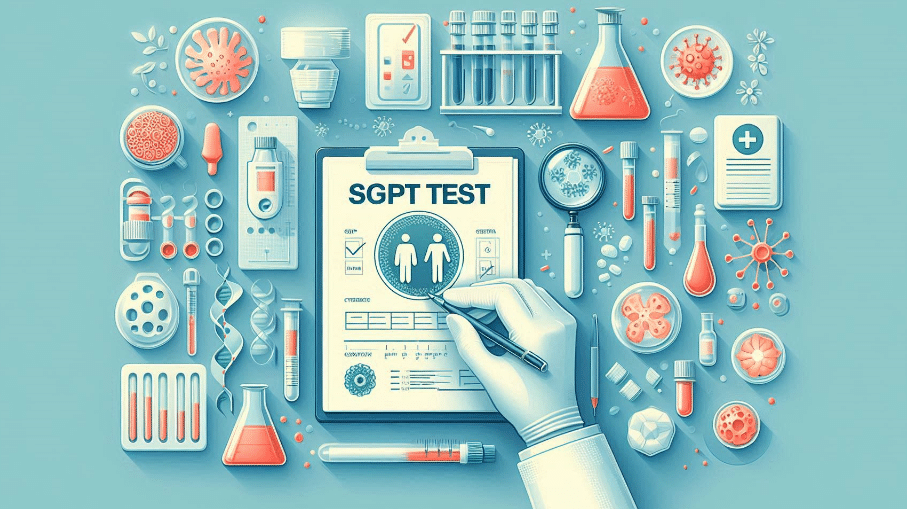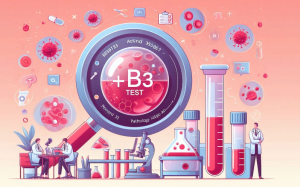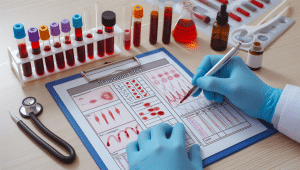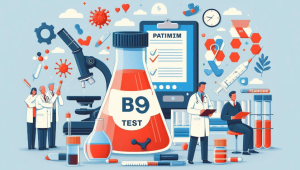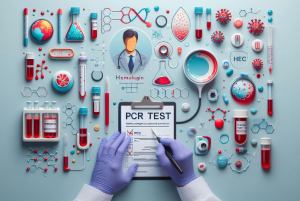What is an SGPT Test?
An SGPT test, also known as an Alanine Aminotransferase (ALT) test, measures the level of the enzyme ALT in your blood. ALT is primarily found in the liver, but it’s also present in smaller amounts in other organs like the heart and muscles. When the liver is damaged or inflamed, ALT leaks into the bloodstream, causing elevated levels in the test.
Why Do You Need an SGPT Test?
Healthcare providers may recommend an SGPT test to:
- Screen for liver damage: It’s a part of routine liver function tests to assess overall liver health.
- Diagnose liver diseases: Elevated ALT levels can indicate liver problems like hepatitis, fatty liver disease, or cirrhosis.
- Monitor liver conditions: The test helps track the progression of liver disease or assess the effectiveness of treatment.
- Evaluate medication side effects: Some medications can cause liver damage, so SGPT levels are monitored during their use.
What Does an SGPT Test Measure?
The SGPT test directly measures the concentration of ALT enzyme in your blood. Indirectly, it can indicate:
- Liver health: Elevated ALT levels suggest liver damage or inflammation.
- Severity of liver disease: The degree of ALT elevation can help estimate the extent of liver damage.
- Potential underlying causes: High ALT levels may point to various conditions affecting the liver, including viral hepatitis, alcohol-related liver disease, or fatty liver.
Preparing for the Test
Usually, no special preparation is needed for an SGPT test. However:
- Fasting: Some labs might require fasting for 8-12 hours before the test, so it’s best to confirm with your healthcare provider.
- Medications: Inform your doctor about any medications or supplements you’re taking, as some can influence the results.
Understanding the Results
The normal range for SGPT (ALT) levels is typically between 7 and 56 units per liter (U/L). However, normal ranges can vary slightly depending on the laboratory and individual factors.
- Normal levels: Suggest a healthy liver.
- Slightly elevated levels: Might indicate mild liver inflammation or damage, potentially due to factors like fatty liver or certain medications.
- Moderately elevated levels: Suggest moderate liver damage or inflammation, often associated with conditions like chronic hepatitis or alcohol-related liver disease.
- Significantly elevated levels: Indicate severe liver damage, possibly due to acute hepatitis, liver failure, or other serious conditions.
Your doctor will interpret your SGPT results in conjunction with other liver function tests, your medical history, and symptoms to determine the underlying cause of any abnormalities.
Risk Factors and Prevention
Factors that can increase ALT levels and potentially damage the liver include:
- Viral hepatitis: Hepatitis B and C infections are major risk factors for liver damage.
- Alcohol abuse: Chronic excessive alcohol consumption can severely damage the liver.
- Obesity and diabetes: Non-alcoholic fatty liver disease is often linked to obesity and diabetes.
- Certain medications: Some medications can be toxic to the liver.
Prevention and management of liver disease focus on:
- Vaccination: Get vaccinated against hepatitis A and B.
- Limit alcohol intake: Avoid or significantly reduce alcohol consumption.
- Maintain a healthy weight: Adopt a healthy diet and exercise regularly to prevent or manage obesity and diabetes.
- Medication safety: Follow your doctor’s instructions carefully when taking any medications and report any side effects.
Remember, an SGPT test is a valuable tool for monitoring liver health. If you have concerns about your liver or have any risk factors, consult your doctor for appropriate evaluation and management.

 7351982473
7351982473